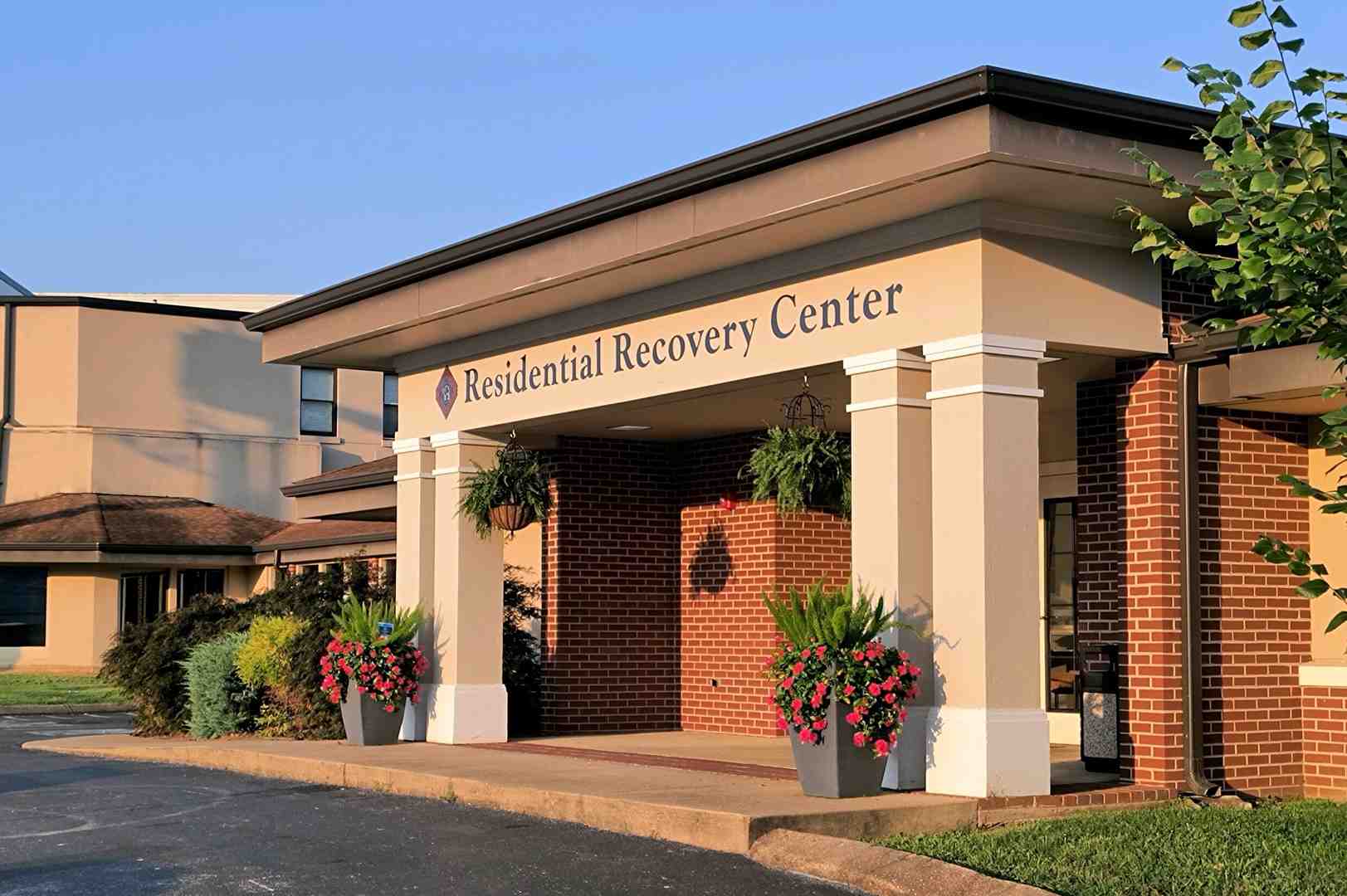
Alcohol and drug addiction are pressing issues in Birmingham, Alabama, and many cities across the United States. As the city grows culturally and economically, it faces significant challenges related to substance abuse, including opioid misuse,alcohol dependency, and other forms of addiction. These challenges are affecting individuals and families in every corner of the city.
Effective addiction treatment options are essential to help people reclaim their lives and work toward lasting recovery. This article will explore the prevalence of substance abuse in birmingham, examine the available treatment options, and discuss the local support systems that assist individuals throughout their recovery journey.
Call Now – Your Journey to Recovery Begins Today!

Take the first step towards a healthier life! Call now to connect with our compassionate team and start your recovery journey today. Your path to healing awaits!
Our recovery specialists are available 24/7 to provide support, and all calls are confidential and free. Reach out anytime – we’re here to help!
Understanding the Need for Addiction Treatment in Birmingham
Birmingham is often called the “Magic City” due to its rich culture, history, and booming development. However, despite its growth and progress, the city struggles with rising rates of addiction. Substance abuse has reached critical levels, especially with opioids and alcohol, leading to severe public health consequences. The increase in addiction rates is placing a heavy burden on healthcare systems and social services, which has underscored the urgent need for comprehensive addiction treatment programs in the city.
The Rising Rates of Addiction in Birmingham
While Birmingham offers opportunity and growth, substance abuse is an ongoing issue. The opioid epidemic, in particular, has worsened in recent years, with significant impacts on public health and safety. Addiction to alcohol and drugs is increasing across all demographics, creating an urgent demand for accessible, effective addiction treatment services in the area.
The response from local healthcare providers has become even more crucial, as the community works to combat the rise in substance misuse. People in Birmingham need timely and effective treatment, whether inpatient or outpatient, to avoid further harm and begin the healing process.
The Scope of Substance Abuse in Birmingham
Substance abuse can affect anyone, regardless of age, gender, or socioeconomic background. The following are some of the most commonly abused substances in Birmingham:
Alcohol Abuse
Alcohol remains one of the most commonly abused substances in Birmingham. Despite being legal, alcohol dependence continues to rise, causing severe health complications like liver disease, cardiovascular problems, and mental health issues, such as anxiety and depression.
Alcohol-related accidents also contribute significantly to the burden on local emergency services, hospitals, and law enforcement.
Opioid Misuse
The opioid crisis has deeply impacted Birmingham and the state of Alabama. Opioid misuse, including the abuse of prescription painkillers and illicit drugs such as heroin, has led to widespread addiction and an alarming number of overdose deaths.
Opioid-related deaths in Birmingham have significantly increased, overwhelming healthcare providers and first responders, stressing the need for targeted treatment and emergency services.
Methamphetamine Addiction
Methamphetamine addiction has surged in Birmingham over the past few years, with increasing hospitalizations due to meth-related health issues. Methamphetamine use is dangerous because of its long-term effects on the brain, nervous system, and cardiovascular health.
As the methamphetamine epidemic grows, Birmingham faces new challenges in addressing the unique treatment needs of individuals suffering from this addiction.
Marijuana Use and Dependency
Although marijuana use is becoming more socially accepted in certain parts of the country, it remains a significant issue in Birmingham, particularly among younger individuals. Heavy or early marijuana use can lead to dependency, and its use in conjunction with other substances can complicate treatment.
With the increasing legalization of marijuana in various states, local communities must focus on prevention and treatment programs that address this growing concern.
Statistics on Alcohol and Drug Addiction in Alabama and Birmingham
Understanding the statistics surrounding addiction in Alabama and Birmingham can help provide insight into the scale of the problem. Here are some key figures:
Opioid Misuse in Alabama
In 2021, Alabama reported over 1,000 opioid-related deaths. The state is deeply affected by the opioid epidemic, and Birmingham is no exception, with rising overdose fatalities and widespread addiction. The opioid crisis in the region has caused public health officials to prioritize addiction treatment and support services.
Alcohol Use Disorder (AUD)
Nearly 9% of Alabama’s adult population suffers from alcohol use disorder (AUD), which contributes to numerous health complications, including liver disease, accidents, and domestic issues. In Birmingham, alcohol abuse is a growing public health crisis, and effective treatment options are crucial for reducing alcohol-related harm.
Methamphetamine Use
Methamphetamine arrests and hospitalizations in Alabama have increased sharply over the last five years. Methamphetamine-related health complications are severe, requiring specialized care. As methamphetamine addiction rises in Birmingham, there is an urgent need for focused treatment programs to address both the physical and psychological aspects of addiction.
Youth and Addiction
Substance abuse is also affecting the youth in Birmingham. A CDC report from 2021 revealed that 10% of high school students in Alabama had used marijuana, while 6% had tried other illicit drugs. This early exposure to substance use highlights the importance of prevention programs and early intervention efforts.
Community Impact and Disparities
Substance abuse disproportionately affects marginalized communities, particularly individuals from low-income backgrounds and African American populations. These groups face additional barriers to accessing addiction treatment, making it essential for treatment programs to be inclusive and accessible to all individuals in Birmingham.
Types of Addiction Treatment Available in Birmingham
Birmingham offers a variety of treatment options to individuals battling substance abuse. Whether someone needs inpatient care, outpatient services, or specialized programs, Birmingham’s rehab centers provide critical support for individuals seeking recovery.
Inpatient Rehabilitation Centers
Inpatient rehab facilities provide a structured environment for individuals who need to focus entirely on recovery. These centers offer:
- 24/7 medical supervision to ensure safety and support
- Detox services to manage withdrawal symptoms safely
- Individual and group therapy sessions to address the root causes of addiction
- Holistic treatments like yoga, art therapy, and meditation to promote mental and physical well-being
Outpatient Programs
Outpatient treatment programs allow individuals to receive care while maintaining their everyday responsibilities. These programs may include:
- Counseling sessions to address addiction and mental health
- Support groups for ongoing accountability
- Medication-Assisted Treatment (MAT) to help manage withdrawal and cravings
Specialized Treatment Programs
Some Birmingham centers offer specialized treatment programs for specific groups:
- Adolescent Programs: Focused on early intervention and prevention for younger individuals struggling with addiction.
- Veteran Programs: Address the unique challenges veterans face, such as PTSD and addiction.
- Women-Only Programs: Provide a safe and supportive environment tailored to the needs of women in recovery.
Finding the Right Rehab Center in Birmingham
Choosing the right treatment facility is critical for successful recovery. Consider the following factors when selecting a rehab center:
Accreditation and Licensing
Ensure the facility is accredited by trusted organizations such as the Joint Commission or CARF.
Comprehensive Services
Look for centers that offer a full range of services, from detox to aftercare planning.
Location and Accessibility
Determine if the center’s location works for your needs, whether for proximity to family or a more private setting.
Success Rates and Reputation
Research the center’s success rates and reviews to gauge its effectiveness in helping people recover.
Cost of Addiction Treatment in Birmingham
The cost of treatment can vary based on the type of program and level of care. Here are some ways to make treatment more affordable:
Insurance Coverage
Most health insurance plans cover some or all addiction treatment services. Verify coverage with your insurance provider.
Sliding Scale Fees
Some centers offer sliding scale fees based on income, making treatment more affordable for those with limited financial resources.
State-Funded Programs
Alabama offers state-funded programs that provide low-cost or free treatment for eligible individuals.
Support Systems in Birmingham
Recovery doesn’t end with treatment; it requires ongoing support. Birmingham offers numerous resources for long-term recovery:
Support Groups
Alcoholics Anonymous (AA) and Narcotics Anonymous (NA) are popular peer-led programs that help individuals stay sober through mutual support.
SMART Recovery
An alternative to traditional 12-step programs, SMART Recovery offers a science-based approach to addiction recovery.
Sober Living Homes
These homes provide a structured and supportive environment for individuals transitioning from rehab to everyday life.
Community Resources
Birmingham’s churches, nonprofits, and workforce development programs offer vital resources, including job training and counseling services.
Why Seek Treatment in Birmingham?
Birmingham is home to a range of reputable rehab centers and community-focused support programs. With both professional treatment services and grassroots resources available, Birmingham offers individuals the tools they need for recovery.
Embracing Recovery in the “Magic City”
Recovery is a lifelong process, but with the right treatment and support, individuals in Birmingham can achieve lasting sobriety. If you or a loved one is struggling with addiction, the first step toward a better life is reaching out for help. Birmingham’s addiction treatment programs are ready to support you every step of the way.
Conclusion
Alcohol and drug addiction are serious issues in Birmingham, Alabama. The rise in opioid misuse, alcohol dependency, and other forms of substance abuse demands immediate action. Fortunately, Birmingham offers a variety of addiction treatment options, including inpatient and outpatient care, specialized programs, and strong community support systems. If you or someone you know is struggling with addiction, call our hotline at (844) 561-0606 for confidential support. With the right help, individuals in Birmingham can take the first steps toward a brighter, addiction-free future.
More About: Birmingham, Alabama
What types of addiction treatment are available in Birmingham, Alabama?
How do I know if I need inpatient or outpatient addiction treatment?
Are addiction treatment programs in Birmingham covered by insurance?
How long does addiction treatment take in Birmingham?
What support systems are available after completing addiction treatment in Birmingham?
Our helpline is 100%
free & confidential
If you or someone you care about is struggling with drug or alcohol addiction, we can help you explore your recovery options. Don’t face this challenge alone—seek support from us.
We’re Here to Help Your Birmingham Addiction Recovery
Resources
Will my insurance
cover addiction
treatment?
We're ready to help
Find the best
drug or alcohol treatment
center
Are you or a loved one struggling with addiction? Call today to speak to a treatment expert.











